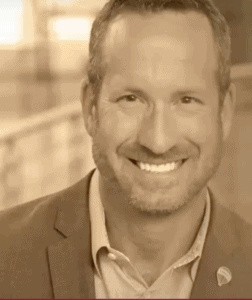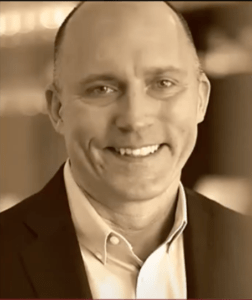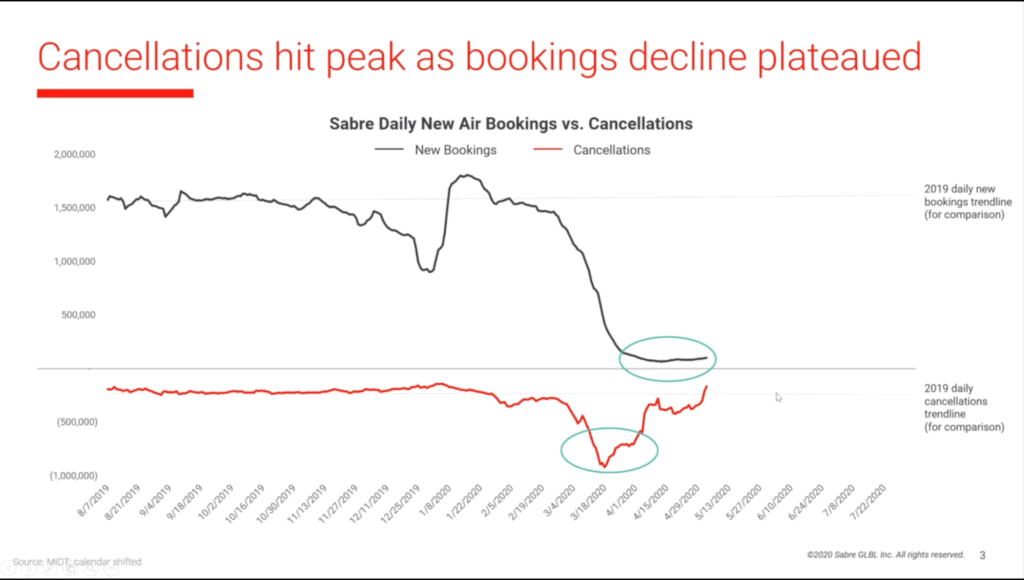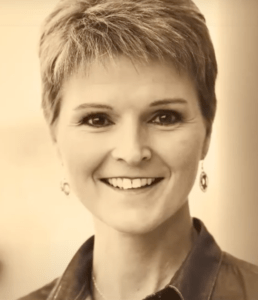Daniels College of Business hosts Voices of Experience miniseries
Do you want to hear how the CEO of a major travel-booking company is thinking about the future of the airline and hotel business? How about the CEO of a major real estate company sharing insights on the housing market? Or, would you want to learn how hospital executives are leading their employees through the frontlines of the coronavirus crisis?
In May, the University of Denver’s Daniels College of Business brought all three topics to nearly 400 attendees on Zoom during its Voices of Experience (VOE) miniseries, Voices of Experience: Lessons on Crisis Leadership.
Attendees heard from the CEO of RE/MAX Holdings, Inc. Adam Contos, Sabre Corporation CEO Sean Menke and Chief People Officer of Centura Health Amy King. The three executives shared what is happening in their industries in virtual one-on-one discussions with Daniels Dean Vivek Choudhury and Professor of the Practice Kerry Plemmons.

Adam Contos
Contos (MBA 2017), who spoke May 13, shared that RE/MAX is in 110 territories and countries, so his team was hearing about the coronavirus long before it hit the U.S. His team quickly made sure RE/MAX customers had fully digital options, including 100% virtual showings and sales transactions.
“The idea behind crisis management is really communication first,” Contos said. “It has to do with being present as a leader.”
Contos shared how he regularly was sending videos to customers long before the crisis. He also explained that he was talking through a confident mindset because of the company’s history.
“Our organization has been through six recessions; we’ve been through hurricanes, earthquakes and other sorts of natural disasters—floods, fires, things like that, all the time,” he said. “So, we activated those different philosophies and discussions in different areas around the world … and made sure our communication was solid.”

Sean Menke
Menke (MBA 2001) is CEO of Sabre Corporation. The travel technology company provides air and hotel bookings for companies like American Airlines, Expedia, Frontier and Travelocity. Menke, like Contos, heard about COVID-19 long before we did in the U.S. He brought up a slide for viewers, which showed the dramatic decrease in airline travel between January and early April.
As the previous CEO of Frontier Airlines during the 2008 economic downturn, Menke said he learned cash was king. He and his team quickly set up a three-phase approach, focusing on the financial implications for Sabre. By late March, the company chose to go to the public market, raising $1.2 billion in cash to help their balance sheet.
 “We solved for what I consider to be the worst-case scenario: how could we operate for 18 months without any bookings or any passengers boarding?” he said.
“We solved for what I consider to be the worst-case scenario: how could we operate for 18 months without any bookings or any passengers boarding?” he said.
Menke also emphasized how important communication was during this time, sending a weekly note to employees, shooting videos on his iPhone and hosting town halls.
“Communication is just so important in a world of uncertainty,” he said.
He shared that this communication wasn’t just internal, but as CEO, it was equally important that he was communicating with his customers, clients and partners. He even shared financial information with all of Sabre’s stakeholders to ensure them Sabre was financially sound and would survive the crisis.

Amy King
The VOE miniseries concluded with a conversation between King (MPS 2012) and Plemmons May 26. The chief people officer of Centura Health recapped her month-long deployment to New Jersey with 34 Centura Health nurses, who provided critical patient care support in three of the nation’s most virus-stricken hospitals.
“One night, one of the nurses said, ‘Amy, I had the greatest shift! This was the first shift where I didn’t have a patient who died,’” King said. “At the end of the deployment, there were nearly 11,000 deaths, so the face of COVID was real.”
On leading 34 nurses through round-the-clock emergency shifts, as well as 21,000 other healthcare employees back home, King echoed Contos’s and Menke’s advice: communication was key. So, too, was being a compassionate, servant leader—taking operational tasks off the nurses’ plates so they could focus on patient care, answering questions with clarity, building trust and relationships, and listening.
“What you can’t solve as a leader is COVID and the situations some people are dealing with,” King said. “But what you can do is listen and be there for them and support them during a difficult time.”
She also said leaders must be able to step out of the day-to-day minutia and keep their eye on the future in order to lead with a clear perspective during times of crisis.
Menke and Contos both received their Executive MBAs at Daniels.
“Never stop learning,” Contos said, sharing that it wasn’t so much what he learned during the program, but that he learned how to learn. “Always be a sponge!”
When reflecting on his leadership, Menke shared that leaders must have clear thoughts and be very decisive, knowing they’ll have to make decisions without all the information they want or need.
“As difficult as it is, I believe that there’s opportunity that comes out of this,” he said. “The best leaders are ones managing what they need to manage now, but you gotta keep your mind set on the future.”
King stressed the need for companies to be different on the backend of this, taking the time to reflect on what doesn’t work anymore that needs to shift and what has worked well that should be continued. One in particular:
“I don’t care what industry you are in; do not underestimate the need for mental health support for your people,” she said. “If you look at how dramatically our workforces have had to shift and you don’t think about how that impacts an employee in your place of work, it’s such an important aspect.”
U.S. Bank sponsored the 2020 VOE miniseries. Video recordings of the Lessons on Crisis Leadership are available at daniels.du.edu/voe.
